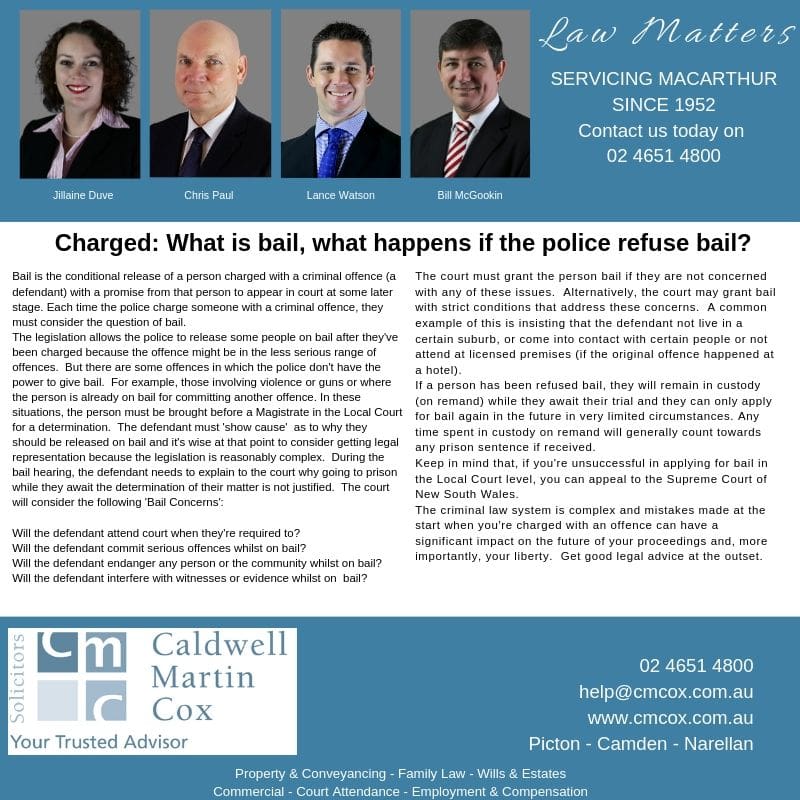Have you been charged with an offence? What happens if the police refuse bail? What are your options? In our latest article in The District Reporter, we discuss bail, and what to expect.
Bail is the conditional release of a person charged with a criminal offence (a defendant) with a promise from that person to appear in court at some later stage. Each time the police charge someone with a criminal offence, they must consider the question of bail.
The legislation allows the police to release some people on bail after they’ve been charged because the offence might be in the less serious range of offences. But there are some offences in which the police don’t have the power to give bail. For example, those involving violence or guns or where the person is already on bail for committing another offence. In these situations, the person must be brought before a Magistrate in the Local Court for a determination. The defendant must ‘show cause’ as to why they should be released on bail and it’s wise at that point to consider getting legal representation because the legislation is reasonably complex. During the bail hearing, the defendant needs to explain to the court why going to prison while they await the determination of their matter is not justified. The court will consider the following “Bail Concerns”:
Will the defendant attend court when they’re required to?
Will the defendant commit serious offences whilst on bail?
Must the defendant endanger any person or the community whilst on bail?
Will the defendant interfere with witnesses or evidence whilst on bail?
The court must grant the person bail if they are not concerned with any of these issues. Alternatively, the court may grant bail with strict conditions that address these concerns. A common example of this is insisting that the defendant not live in a certain suburb, or come into contact with certain people or not attend at licensed premises (if the original offence happened at a hotel).
If a person has been refused bail, they will remain in custody (on remand) while they await their trial and they can only apply for bail again in the future in very limited circumstances. Any time spent in custody on remand will generally count towards any prison sentence if received.
Keep in mind that, if you’re unsuccessful in applying for bail in the Local Court level, you can appeal to the Supreme Court of New South Wales.
The criminal law system is complex and mistakes made at the start when you’re charged with an offence can have a significant impact on the future of your proceedings and, more importantly, your liberty. Get good legal advice at the outset.




